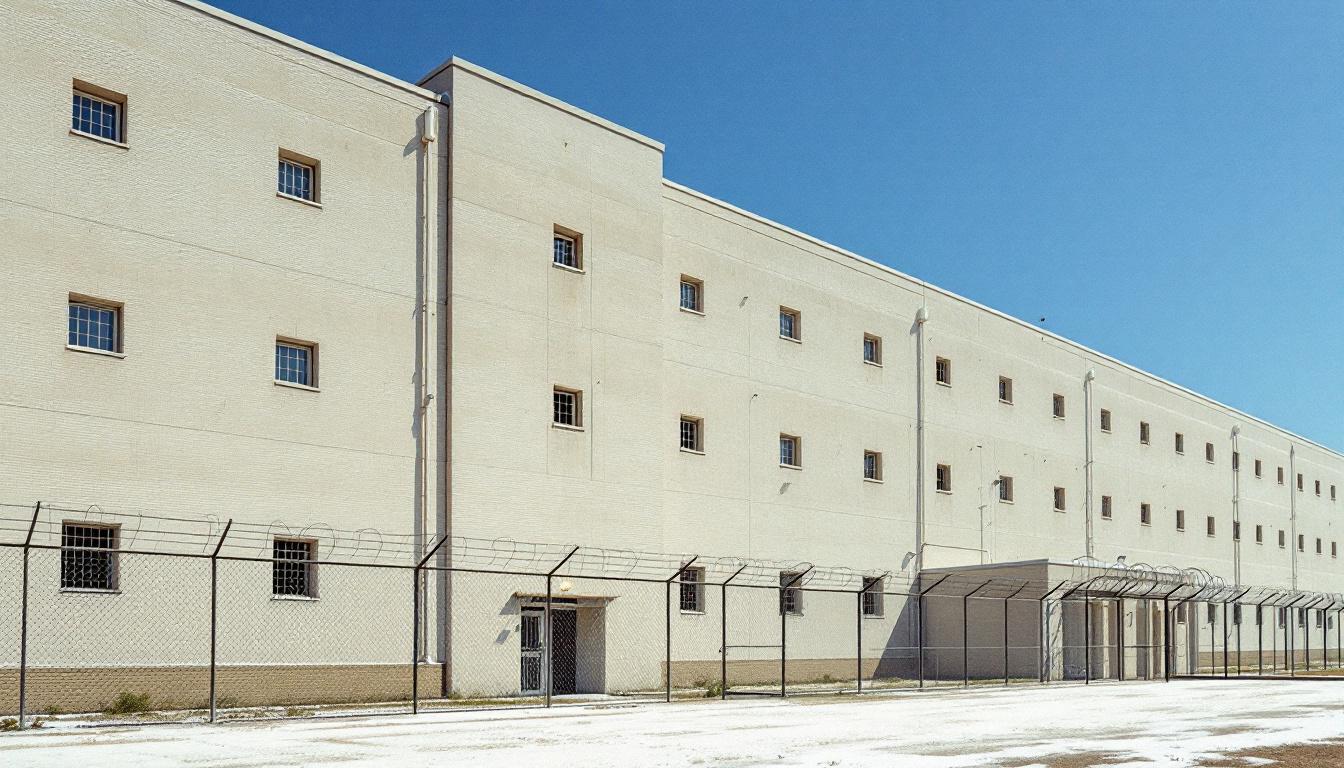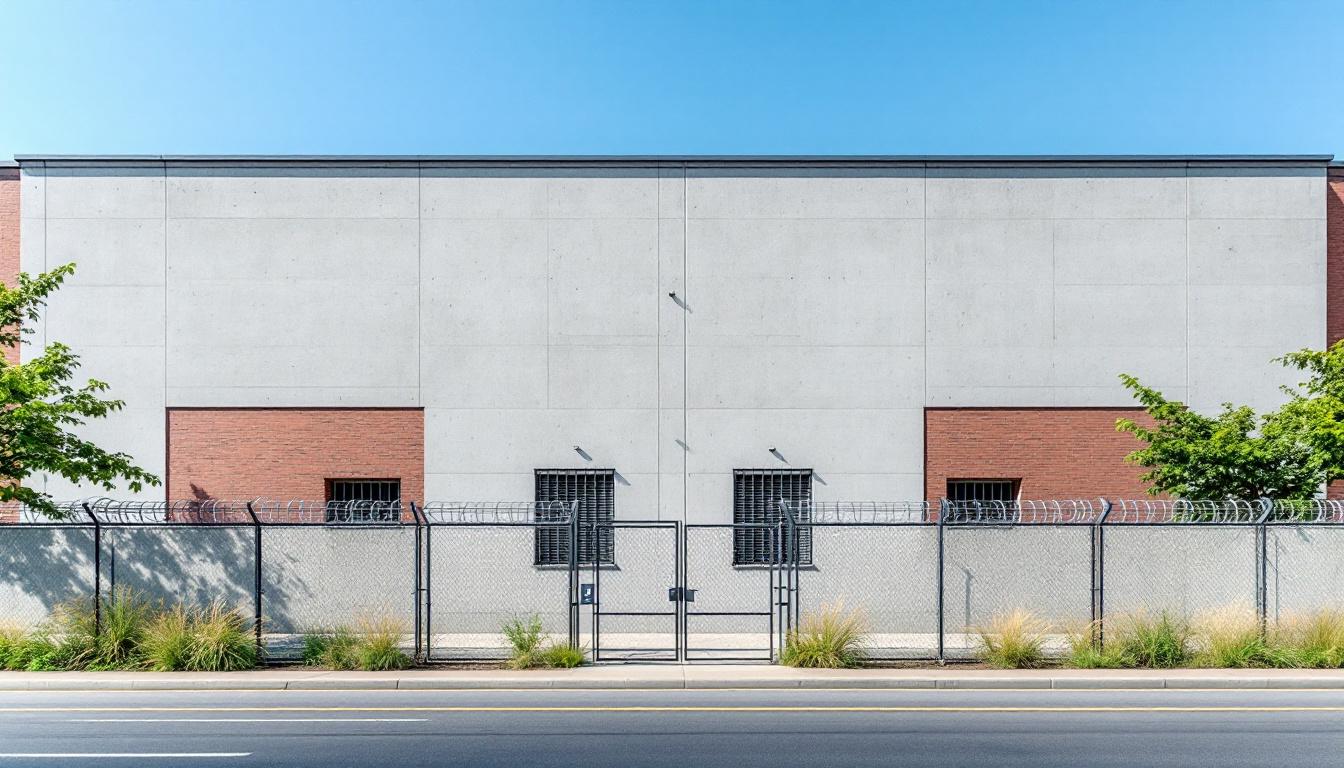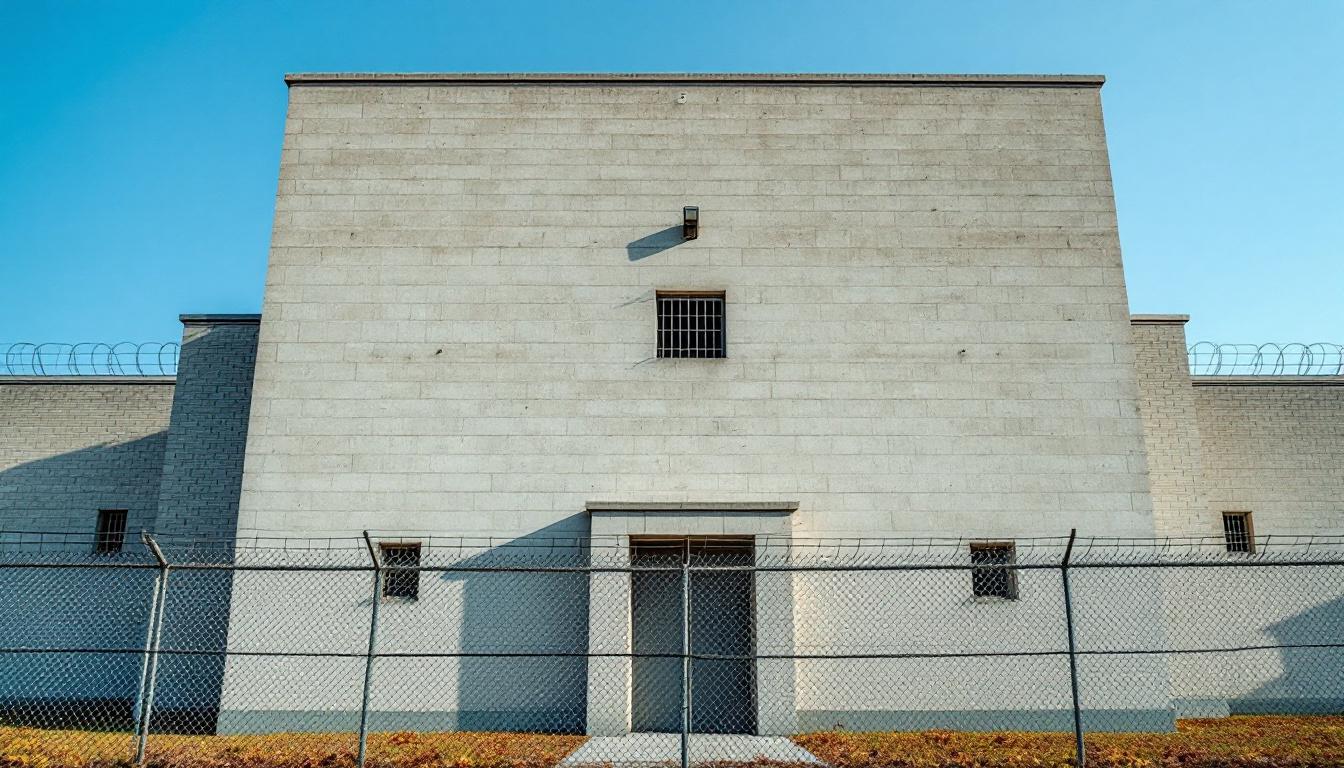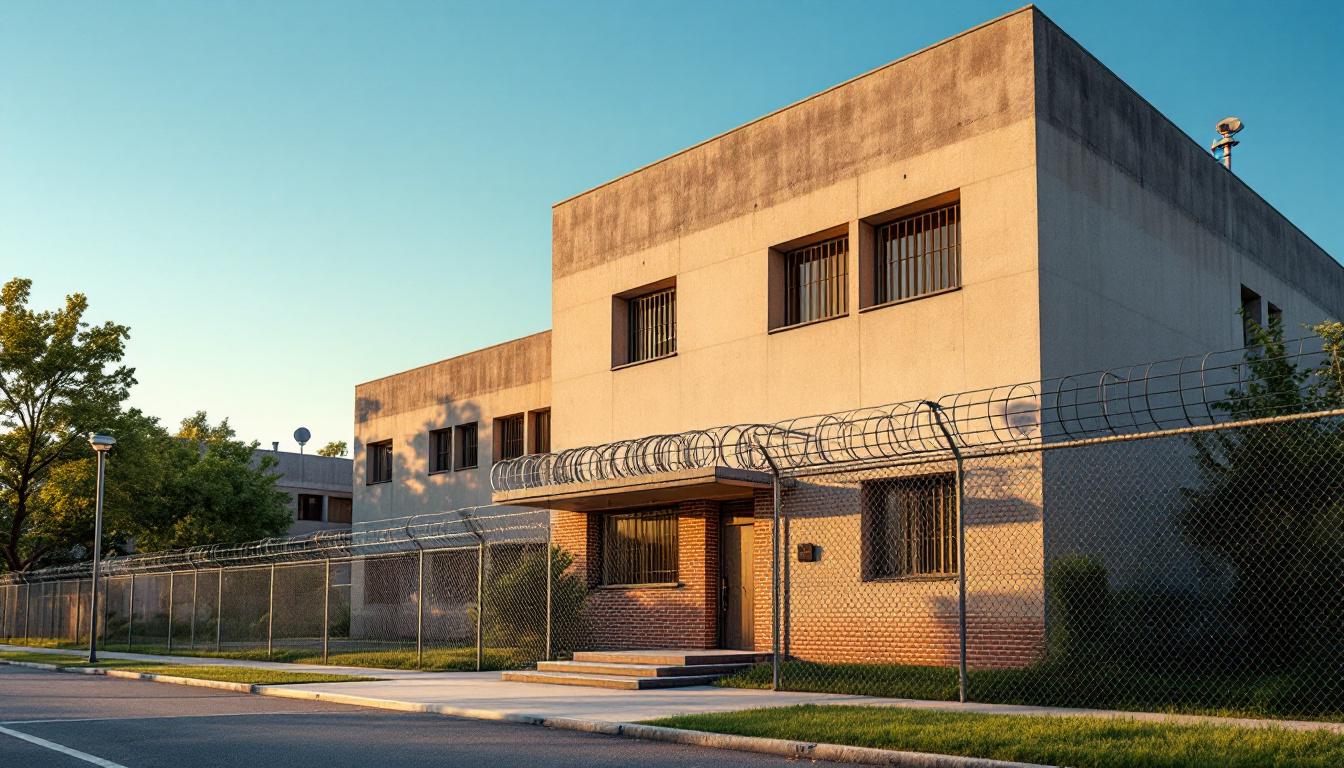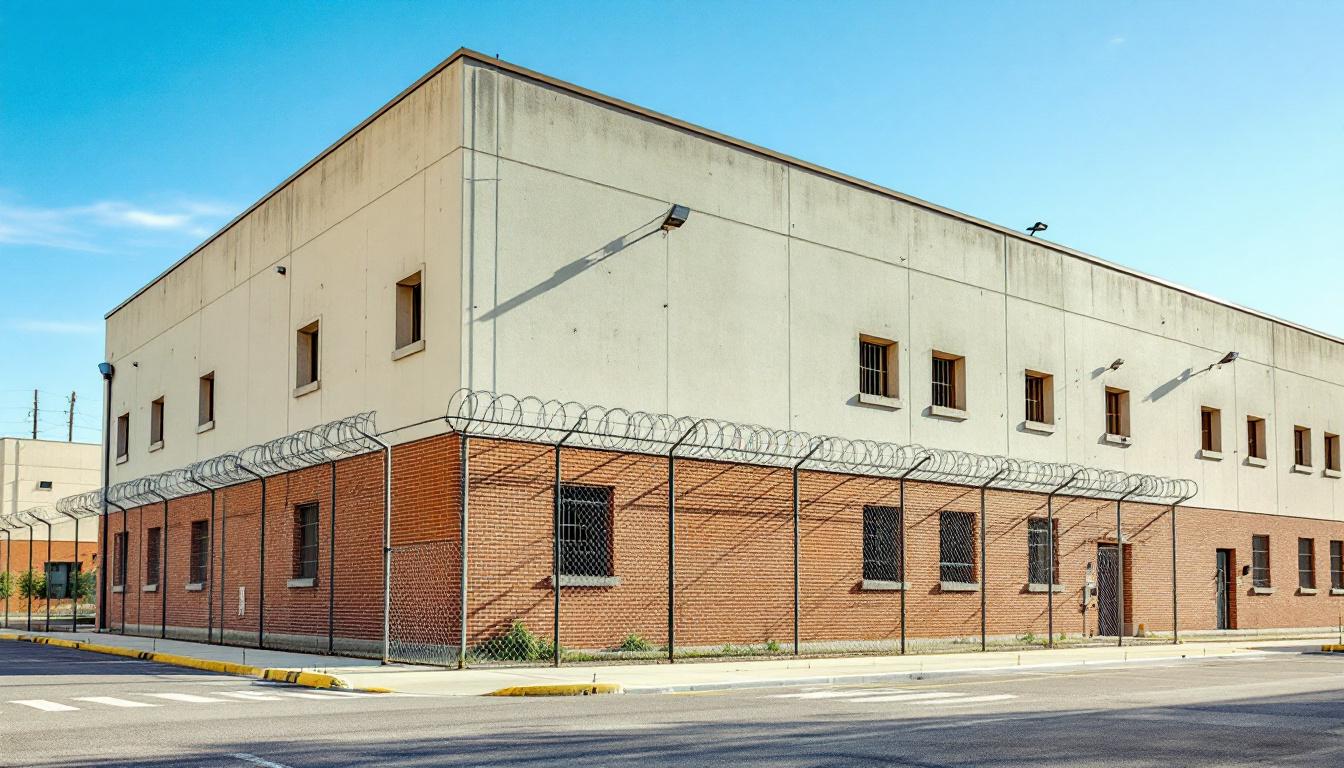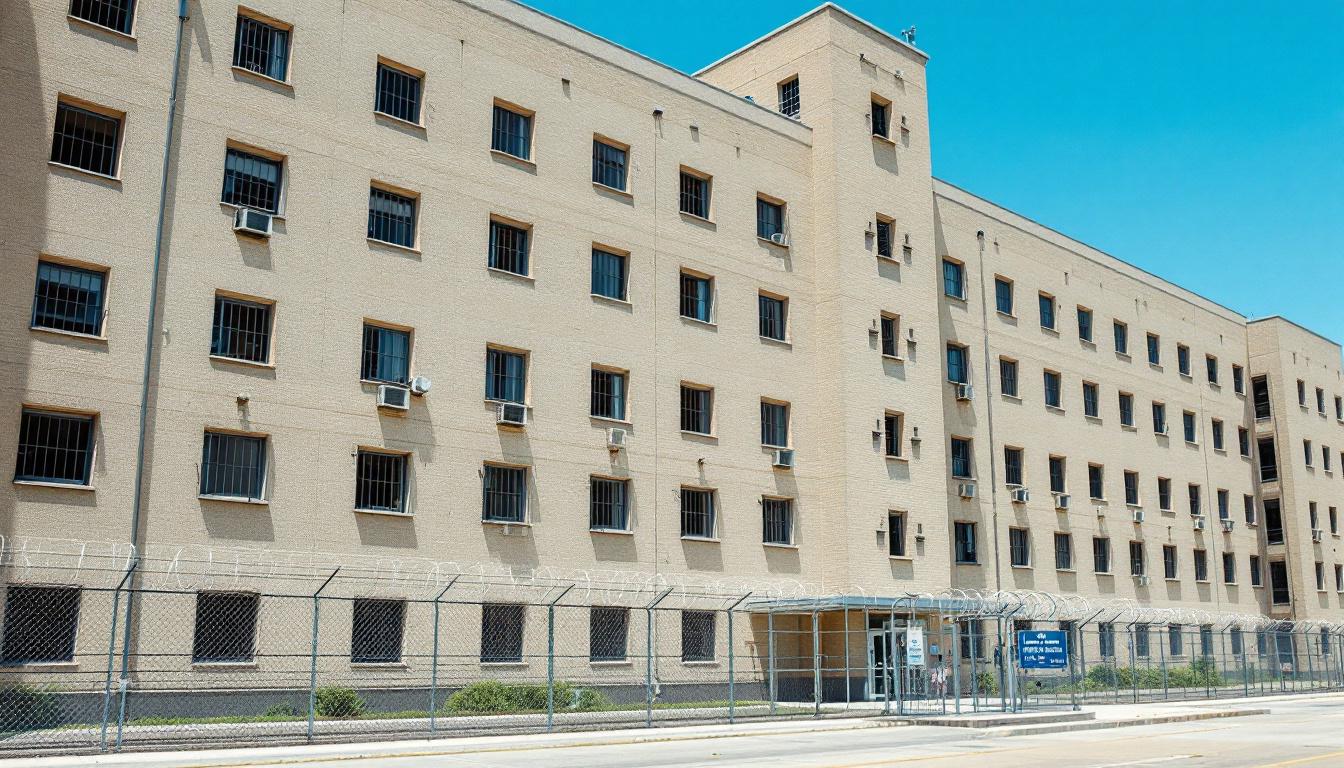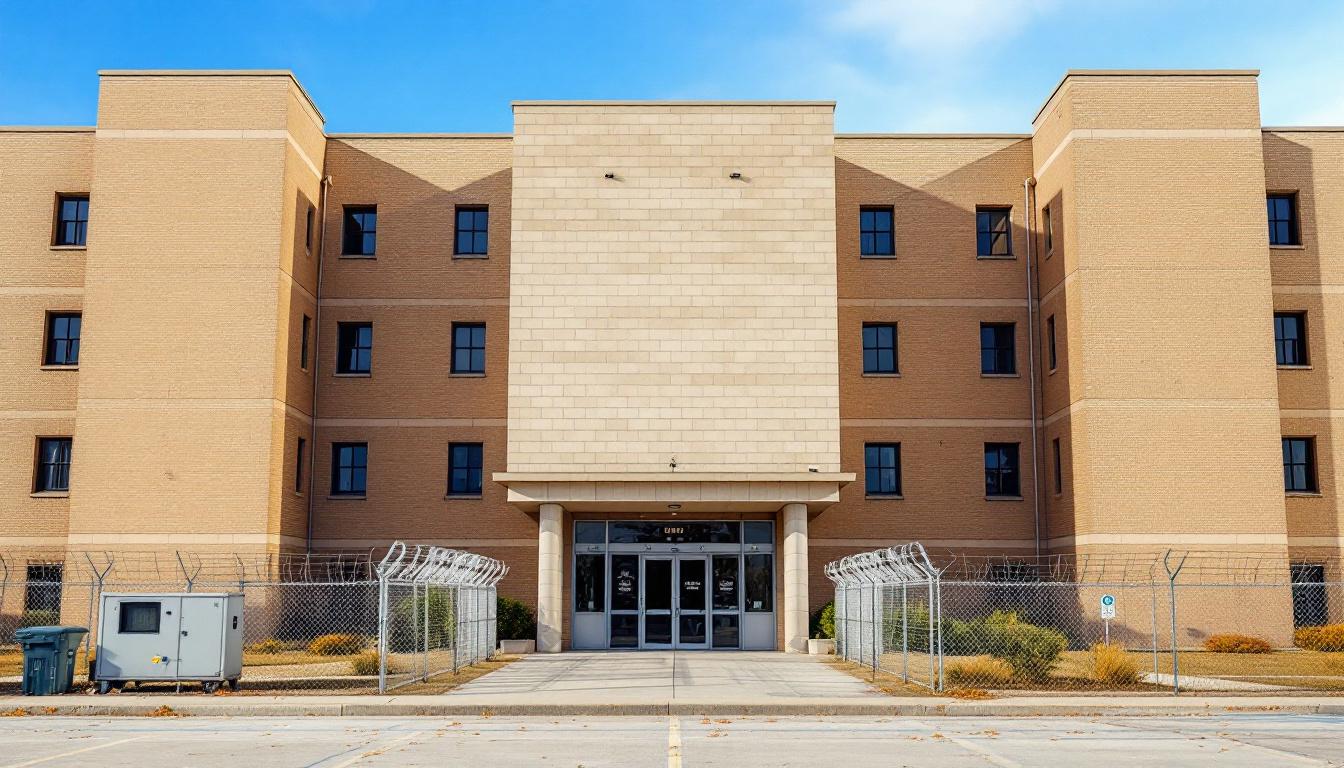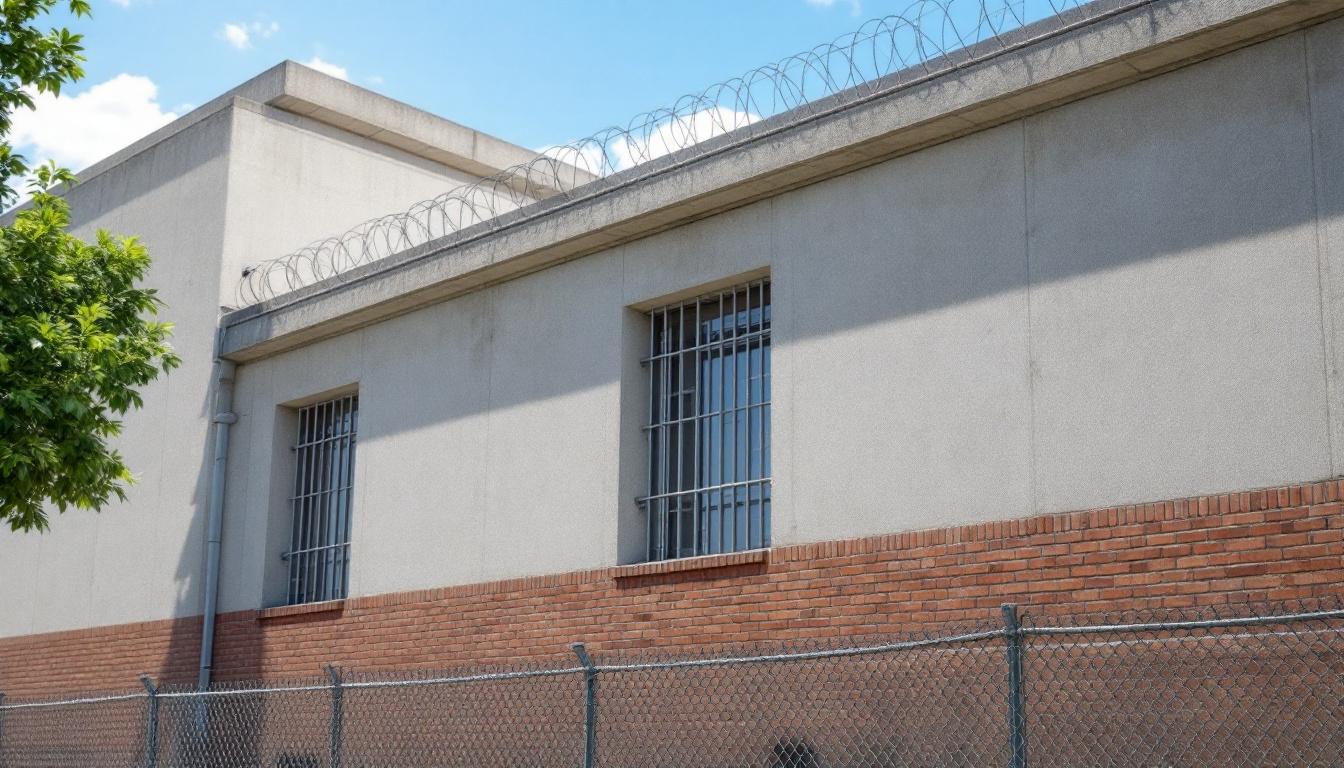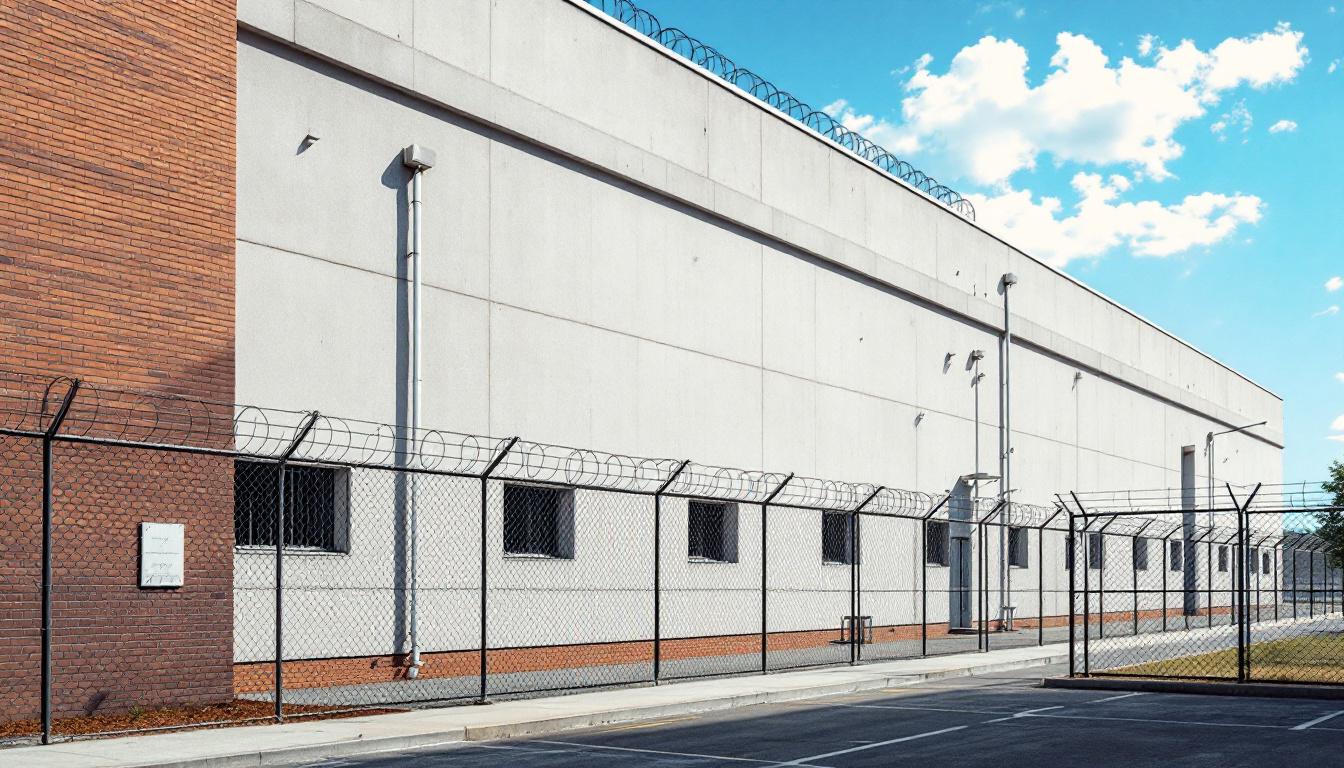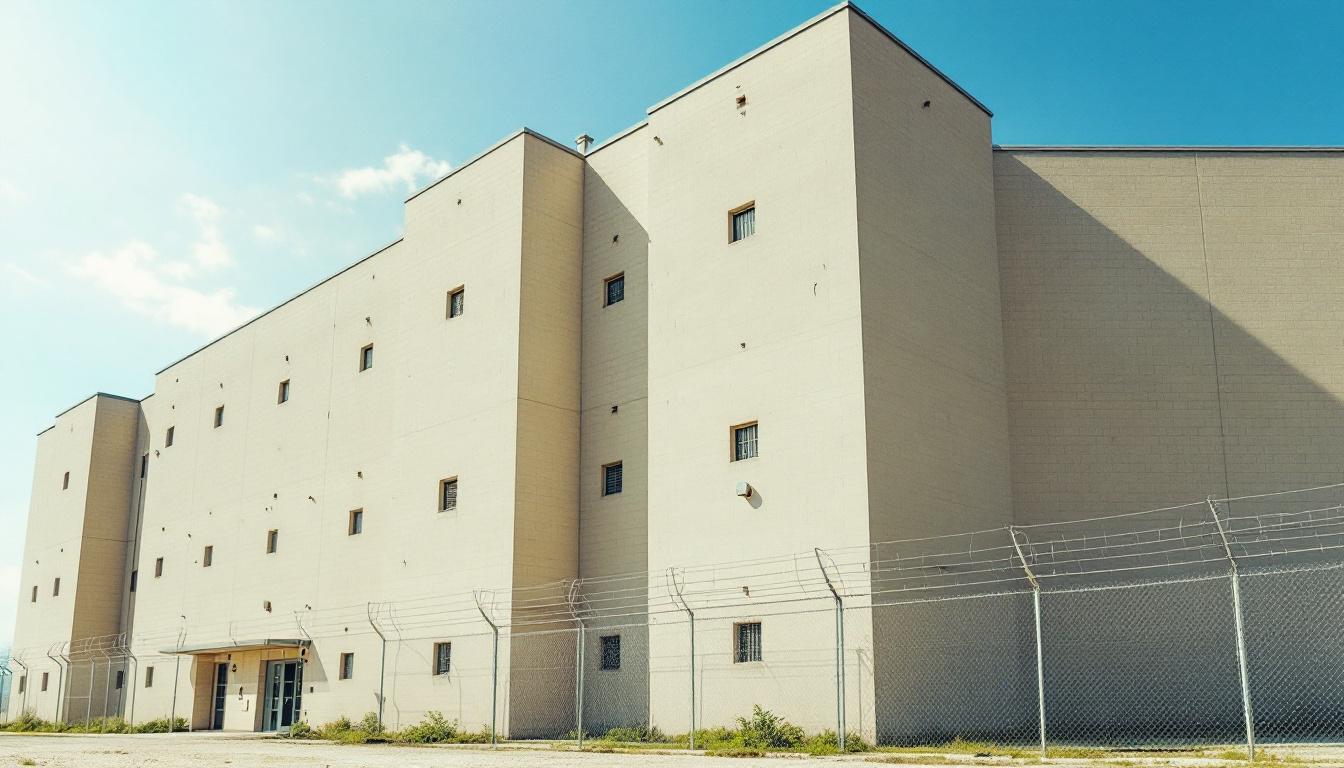
Quick Navigation
How to contact an inmate at Trinity County Jail
This comprehensive guide will walk you through how to connect with an inmate at Trinity County Jail. Follow the steps below to find an inmate and send letters and photos:
- Search for the inmate using our search tool below
- Create your account or log in to Penmate
- Write your message (up to 6,000 characters)
- Send instantly - inmates receive printed copies daily
Find an Inmate
Search for an inmate to start communicating today
Tip: You can search by first name, last name, or inmate ID number
To contact a person at Trinity County Jail start by searching for the person on the official facility website. Perform a search by following these steps:
- Step 1: Enter their first name and last name into the search form and click "Search"
- Step 2: Locate their inmate record
- Step 3: Write down their Inmate ID and any housing information provided
Important! Be sure to enter the person's full name. Nicknames should not be used.
How to Send Messages to Inmates

You can use your phone or computer to send emails, letters, and photos to an inmate. Messages are sent electronically to inmate tablets or kiosks at the facility. If you would like to send a message, start by searching for an inmate at Trinity County Jail.
Sending Photos and Postcards

A great way to send love and support to a loved one at Trinity County Jail is to send photos and postcards. It only takes a few minutes to send photos from your phone and it makes a huge difference. You can also mail postcards with words of support and inspiration, or design your own postcard for special moments like birthdays and holidays.
Important! Be sure not to send any explicit photos or they may not be approved by the facility. You can also use a photo printing app like Penmate to make sure your photos are printed at the correct size (4x6 or 3x5) and are mailed according to the rules and regulations of Trinity County Jail.
Frequently asked questions about Trinity County Jail
-
How long does it take to deliver a message?
If you're sending an email message your letter is usually delivered within 24-48 hours. For messages sent via mail you should expect delivery within 3-7 days. All messages will need be approved by Trinity County Jail.
-
How much does it cost to send a message to Trinity County Jail?
You can send a message free using your phone or mail a message via USPS for the price of a $0.60 stamp and envelope. You can also purchase credits or e-stamps from services starting at $1.99.
-
What services can I use to contact an inmate at Trinity County Jail?
Penmate
You can use Penmate to send letters and photos to an inmate from your phone. It's an easy way to stay in touch during your loved one's incarceration. Use the inmate locator to find an inmate's location and contact information, then you can send messages within a few minutes.
Securus messaging
Securus may be another option for communicating with an inmate at Trinity County Jail. You can create a friends and family account and purchase credits to send messages. All messages will be reviewed and must be approved by the facility.
JPay
Some county jails and state prisons may support sending messages with JPay. You must register an account with the system, find your loved one, and purchase stamps to send messages. For some locations you can also attach photos.
Smart Jail Mail
You may also check if Smart Jail Mail is available at Trinity County Jail. Smart Jail Mail is operated by Smart Communications and has contracted with some state and county jails. After purchasing credits, your messages and photos are sent to the facility, printed out, and then handed out to your loved one.
-
What is the mailing address of Trinity County Jail?
Mailing address:
Trinity County Jail
101 Memorial Dr
Weaverville, CA 96093
Phone: (530) 623-1348Business hours:
- Monday: 9:00 AM – 5:00 PM
- Tuesday: 9:00 AM – 5:00 PM
- Wednesday: 9:00 AM – 5:00 PM
- Thursday: 9:00 AM – 5:00 PM
- Friday: 9:00 AM – 5:00 PM
- Saturday: 9:00 AM – 5:00 PM
- Sunday: 9:00 AM – 5:00 PM
-
What are the visiting hours at Trinity County Jail?
Visiting hours at Trinity County Jail vary by housing unit and security level. Generally, visits are scheduled on weekends and holidays, with some facilities offering weekday visits. Contact the facility directly at (530) 623-1348 or check their website for the current visiting schedule. Visits typically last 30-60 minutes and must be scheduled in advance.
-
What items are prohibited when sending mail to Trinity County Jail?
Prohibited items typically include: cash, personal checks, stamps, stickers, glitter, glue, tape, staples, paperclips, polaroid photos, musical or blank greeting cards, hardcover books, magazines with staples, and any items containing metal or electronics. Only send letters on plain white paper with blue or black ink. Photos must be printed on regular photo paper (no Polaroids). Always check with Trinity County Jail for their specific mail policies.
-
How do I send money to an inmate at Trinity County Jail?
You can send money to an inmate at Trinity County Jail through several methods: 1) Online using JPay, Access Corrections, or the facility's approved vendor, 2) Money orders mailed directly to the facility with the inmate's name and ID number, 3) Kiosks located in the facility lobby, or 4) Over the phone using a credit or debit card. Fees vary by method, typically ranging from $2.95 to $11.95 per transaction.
-
Can I schedule a video visit with an inmate at Trinity County Jail?
Many facilities now offer video visitation as an alternative to in-person visits. At Trinity County Jail, video visits may be available through services like Penmate, Securus Video Connect, GTL, or ICSolutions. Video visits typically cost $10-20 for 20-30 minutes and must be scheduled in advance. You'll need a computer or smartphone with a camera and reliable internet connection. Contact the facility for their specific video visitation policies and approved vendors.
-
What identification do I need to visit an inmate at Trinity County Jail?
All visitors must present valid government-issued photo identification such as a driver's license, state ID, passport, or military ID. Minors must be accompanied by a parent or legal guardian who can provide the minor's birth certificate. Some facilities require visitors to be on the inmate's approved visitation list, which may require a background check. Contact Trinity County Jail for specific ID requirements and visitor approval procedures.
-
How can I find out an inmate's release date?
To find an inmate's release date at Trinity County Jail, you can: 1) Use the online inmate search tool if available, 2) Call the facility's records department, 3) Contact the inmate's case manager or counselor, or 4) Have the inmate provide this information during a call or visit. For privacy reasons, some facilities only release this information to immediate family members.
Facility Overview
Official Website

About Trinity County Jail
County jail facilities serve as crucial components within California's correctional framework, providing secure housing for individuals awaiting trial or serving shorter sentences while maintaining essential connections to their home communities. Trinity County Jail operates within this structure in Weaverville, CA, functioning as the primary detention facility for this rural Northern California region.
Nestled in the mountainous terrain of Trinity County, this CA correctional facility typically manages a diverse range of responsibilities that extend beyond basic detention services. The facility generally provides essential services including medical care, mental health support, and educational opportunities that may help prepare individuals for successful community reintegration. Given the remote geographic location of Weaverville, the population services often include coordination with regional healthcare providers and social service agencies to ensure comprehensive care. The jail typically maintains classification systems to appropriately house different categories of inmates while supporting family visitation programs that recognize the importance of maintaining community ties during incarceration.
Operating within California's broader correctional network, Trinity County Jail generally emphasizes both public safety and rehabilitation through various programming approaches that may include substance abuse counseling, vocational training opportunities, and pre-release planning services. The facility often works closely with local law enforcement agencies, courts, and community organizations to facilitate smooth transitions for individuals returning to the community. Staff members typically focus on maintaining secure operations while providing supportive environments that encourage positive behavioral changes, reflecting the facility's dual commitment to protecting public safety and promoting successful reintegration into Trinity County's close-knit communities.
Programs & Services
Through comprehensive rehabilitation initiatives and structured therapeutic interventions, Trinity County Jail demonstrates its commitment to fostering meaningful transformation among the population it serves. The facility's approach emphasizes personal growth and skill development, recognizing that effective reintegration requires addressing both immediate needs and long-term goals. These carefully designed programs typically focus on building essential life skills while providing the emotional and psychological support necessary for successful community reentry.
Educational initiatives form a cornerstone of the facility's supportive framework, often including basic literacy instruction, GED preparation, and college correspondence courses that enable participants to pursue higher education goals. The population may access vocational training programs that emphasize practical skill development in various trades, preparing individuals for meaningful employment opportunities upon release. Moreover, these educational and vocational components are typically structured to accommodate different learning styles and academic backgrounds, ensuring that participants can progress at their own pace while building confidence in their abilities.
Therapeutic programs address deeper behavioral and psychological needs through specialized interventions, including sex offender treatment for those requiring such services. Rehabilitation programs typically incorporate evidence-based approaches that help participants develop coping strategies and address underlying issues that may have contributed to their incarceration. Peer support groups often provide additional layers of encouragement and accountability, creating a community-focused environment where individuals can share experiences and learn from one another's journeys toward positive change.
Daily Life & Visitation
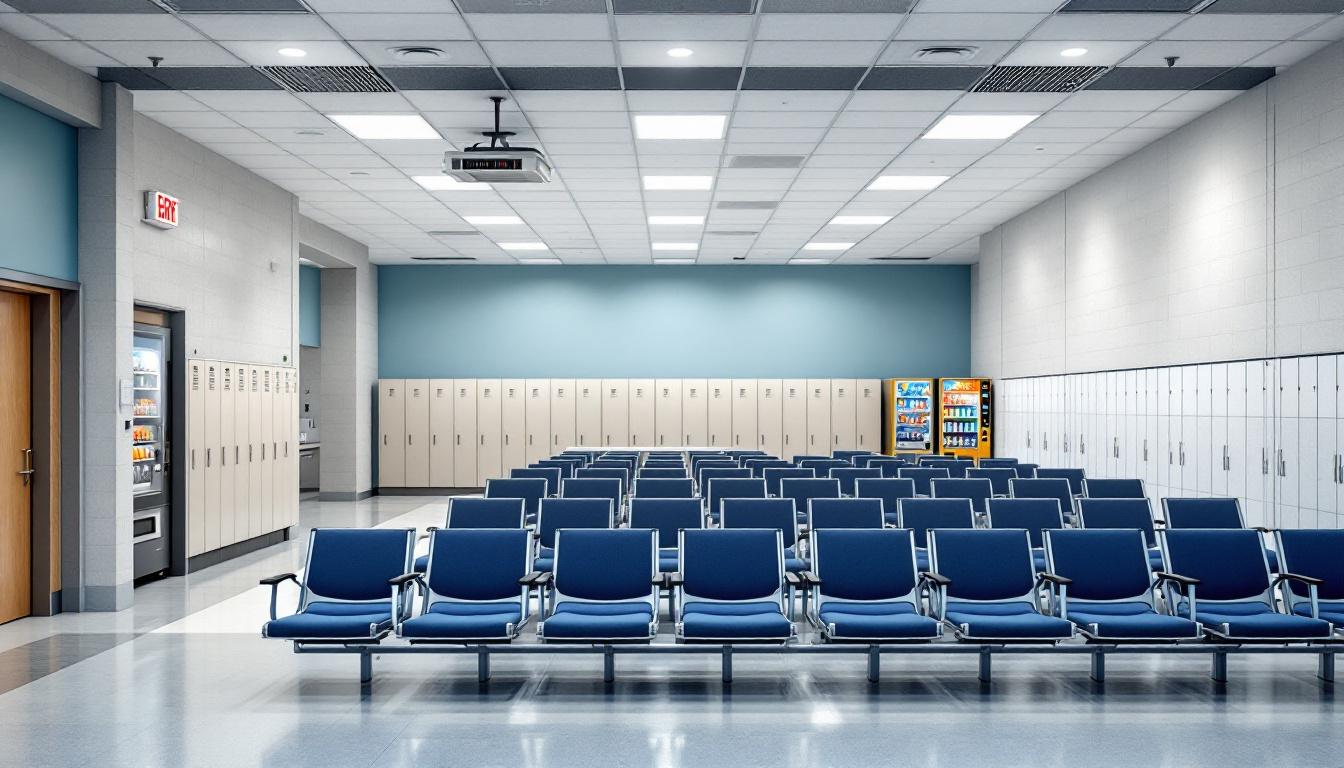
Structured routines and clearly defined protocols shape every aspect of the experience for the population at Trinity County Jail, where systematic organization now governs the flow of daily activities from early morning wake-up calls through evening lockdown procedures. The population regularly follows established schedules that typically include designated times for meals, recreation, and various programming opportunities, with staff coordinating movement between different areas of the facility to maintain security while allowing for necessary activities. Structured programming schedules supply consistency and purpose to each day, often including educational classes, substance abuse counseling, and work assignments that help residents maintain productive routines during their stay.
Living accommodations within the facility generally consist of housing units designed to separate the population based on classification levels, with dormitory-style arrangements or individual cells depending on security requirements and available space. Moreover, the population typically receives three meals daily in designated dining areas, where they may interact with other residents under staff supervision, while commissary services allow individuals to purchase additional food items and personal necessities when funds are available through their accounts. Personal property policies usually restrict the items residents may keep in their living spaces, though basic hygiene products and limited personal effects are generally permitted.
Recreation and exercise opportunities typically supply structured physical activity through scheduled yard time or indoor recreation areas, whereas visitation policies generally allow family members and approved visitors to maintain contact during designated hours and days of the week. The population may often participate in facility work assignments such as kitchen duties, laundry services, or general maintenance tasks, which can provide structure and sometimes reduce time served through good behavior credits. Communication with family and friends typically occurs through monitored phone calls, written correspondence, and scheduled video visits, helping residents maintain important support systems while serving their sentences at the facility.
Ready to Connect?
Start communicating with your loved one today
Search for an Inmate
